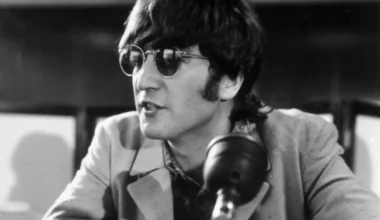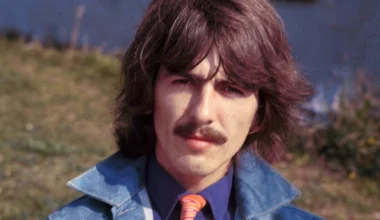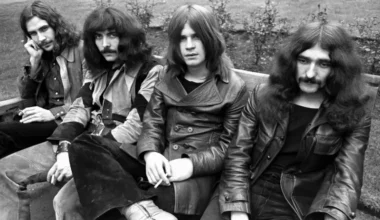David Bowie and Iggy Pop left Warsaw by train as snow fell. Full to the brim with cheap sausages and having lately recovered their appetite after years of feeding on a solely nasal diet, they walked out into the dark post-war city with a sense of creative mysticism. They were in horrible shape but recovering, and ideas were blooming.
Through exorcisms and rehab stints, music remained their guiding star, a beacon that always drew them back into its orbit. It’s just that stuff got in the way. Nothing was getting in the way of it anymore, which was also almost unbelievable. They were free. Addictions lingered like a shadow, but their weirdness resulted in artistic excellence.
The relocation to Berlin was a successful one. As guitarist Carlos Alomar recounted, “David Bowie traveled to Berlin with Iggy for isolation. It was to humanize his situation by saying, ‘I’d want to forget my world, go to a café, have a coffee, and read the newspaper.’ They could not do that in America. Sometimes you just need to be alone with your issues. Sometimes you just want to shut up. However, this did not imply that they were in good shape.
Thankfully, music kept them occupied, and they both saw it as a salvation for the first time. This resulted in a masterpiece. As David Bowie told Q magazine, “My concern with Low was not the music.” The music was expressing my bodily and emotional state, which was my concern.
He added, “So the music was almost healing. It was like, ‘Oh yes, we’ve made an album that sounds like this. However, it was a byproduct of my existence. It simply kind of came out. I never spoke with the record label about it. I never spoke to anyone about it and recently completed this album while in treatment. “A dreadful state.”
He was in a darkened room, beneath a portrait of fascist novelist Yukio Mishima, when he came up with these ideas. He relocated to France and Switzerland in the interim, partially undermining the narrative of the Berlin Trilogy that would follow. It was in Berlin and these weird journeys to Warsaw that the record took shape.
For Bowie, the paradigm of this “dreadful state” and his yearning to escape it came to the forefront with one song in particular, an unparalleled composition that characterizes Low. “The song ‘Sound And Vision‘ makes me melancholy. “I was trying very hard to drag myself out of an awful period of my life,” he said about the breathtaking anthem.
Adding, “I was confined in a room in Berlin, promising myself I was going to straighten up and stop using narcotics. I wasn’t going to drink again. Only a portion of it was proven correct. It was also the first time I realized I was killing myself, and it was time to address my physical state. I had also a couple of scares and thought, ‘Well, I got through that by the skin of my teeth.’ Severe nasal bleeding, passing out, and other unpleasant symptoms.
When asked about the inspiration for the song, he told Melody Maker: “That was an ultimate retreat song; honestly, the first thing I wrote with Brian [Eno] in mind. It was simply the desire to leave America, which was a dismal time for me. I was going through some terrible moments. It desired placement in a small frigid room with overpowering blue walls and shades on the windows.
The song is still a magnificent retreat to this day, and the 2013 version may be the best alternate take in music. It’s the gateway drug into Low, a record that has stood the test of time by capturing a feeling. The peculiar October haziness has always felt fascinatingly relatable, although it shouldn’t be.








